*Resources below*
Every March, as communities nationwide come together to observe Brain Injury Awareness Month, we at the Conference on Crimes Against Women are reminded of a pressing truth: brain injuries—especially those stemming from violence—are too often overlooked in our broader discussions of women’s safety and justice.
This month, we shine a light on the hidden wounds that many survivors bear, emphasizing that brain injury is not only a medical issue but a critical human rights concern.
Brain injuries, particularly traumatic brain injuries (TBIs), can result from a variety of incidents including accidents, falls, or violent assaults. For many women who have survived abuse, the injury may not just be physical—it can also affect cognitive abilities, lead to emotional dysregulation, cause health problems like late-stage strokes, and reduce quality of life. Despite their profound impact, these injuries are frequently underdiagnosed or misinterpreted, leading to long-term consequences that extend far beyond the initial trauma and can lead to an untimely death.
When violence leaves its mark on the brain, the visible scars of physical abuse often mask the less visible, yet equally debilitating, neurological damage. This dual burden complicates recovery, making it essential for medical professionals, advocates, and policymakers alike to consider brain injury as an integral component of the support survivors need.
Violence against women is a multifaceted issue. For many survivors, the assault is not merely an isolated act of aggression but a catalyst for a cascade of health challenges, including brain injuries. The neurological effects can be subtle—ranging from cognitive impairments to emotional instability—yet they compound the trauma of the original abuse.
At the Conference on Crimes Against Women, we recognize that these injuries often fall through the cracks. Survivors may face skepticism or misunderstanding when their symptoms do not fit the typical profile of physical injuries. This oversight can result in a lack of appropriate care, further marginalizing those who have already endured significant hardship.
As advocates and allies, we are committed to transforming how society and our institutions respond to brain injuries in the context of violence against women. This month, we call on everyone—healthcare providers, policymakers, community leaders, and survivors—to take the following steps:
- Enhance Professional Training: Increase training for medical and mental health professionals to ensure that signs of brain injury are recognized and treated promptly.
- Expand Support Services: Advocate for services that address the dual needs of physical and neurological recovery, ensuring survivors receive holistic care.
- Drive Research Initiatives: Invest in research that deepens our understanding of brain injuries as they relate to violence, which can inform better treatment protocols and prevention strategies.
- Reform Policy and Legal Practices: Work toward legal reforms that acknowledge the impact of brain injuries in cases of violence, ensuring survivors’ experiences are fully validated in court proceedings.
Brain Injury Awareness Month is not only a time to reflect on the challenges faced by survivors—it’s an opportunity to drive meaningful change. By integrating brain injury awareness into our broader conversations about crimes against women, we affirm that every facet of violence must be acknowledged and addressed.
At the Conference on Crimes Against Women, we are committed to a future where the hidden consequences of violence no longer remain in the shadows. We invite you to join us in this vital conversation, share your insights, and support efforts that pave the way for comprehensive healing and justice at the 2025 Conference on Crimes Against Women. Read below about the workshops we are offering that discuss these very issues. Together, we can ensure that the voices of survivors are heard and that every aspect of their experience is met with the care and understanding it deserves.
REGISTER HERE
Resources from CCAW programs on Brain Injuries:
Click each title to access the resource.
CCAW Workshops:
All of these workshops will be presented at the upcoming 2025 Conference on Crimes Against Women:
- Chronic Traumatic Encephalopathy & DV: A Case Report & Brief Review of the Scientific Literature
Autopsy and neuropathologic findings will be presented and discussed in a young victim of domestic violence who was found to have brain lesions consistent with chronic traumatic encephalopathy (CTE). A brief review of the scientific literature on this subject will also be discussed. The case was published in the “Letter to the Editor” section of the Journal of Neuropathology and Experimental Neurology in 2021. A limited number of copies will be available for distribution.
- The Invisible & Unrecognized Domestic Violence- The Traumatic Brain Injury Epidemic: How to Support the Resilience & Healing of Victims & Survivors
- Impact of Trauma for First Responders: Skills Training for Optimal Performance & Health
- FILM SCREENING: This Hits Home
- Beyond Fight/Flight/Freeze: The Neurobiology of Fawning & Appeasement
- Bridging Mental Health & Law: A Collaborative Approach for Community Well-Being
- Here Be Dragons: Working with Criminally-Oriented/Antisocial/Psychopathic Clients
ICCR Webinars:
Click the title to watch the webinar.
Presented by Rachel Ramirez, Center on Partner-Inflicted Brain Injury.
Presented by Mary Ann Contreras, RN, Injury and Violence Prevention Trauma Service at JPS Healthnetwork.
Presented by Jessica Brazeal, The Haven Wellness Center
ICCR eCourse:
Click the view the course.
What happens to the brain when traumatized, and how can first responders effectively interact with victims of domestic violence to reduce further harm? Check out this short, instructional video to learn more.
PCAW Episodes:
Click the title to listen to the episode.
Discover the connections between domestic violence and traumatic brain injury in this eye-opening episode. Our guest, Dr. María Garay-Serratos , a leading expert in domestic violence and traumatic brain injury, shares her powerful personal story and professional insights.
Dr. Garay-Serratos reveals the often overlooked traumatic brain injuries resulting from violence in the home, advocating for better recognition, screening, and treatment of these issues within healthcare systems. Our discussion will unravel the shocking truths behind the silent epidemic of domestic violence, the overwhelming statistics regarding reported crimes, and the long-term health implications for survivors.
Listeners will gain a comprehensive understanding of the urgency surrounding this topic and hear firsthand stories that highlight the necessity of systemic change. Join us in imparting hope, healing, and awareness as we explore the resources available for those affected by domestic violence and advocate for a future where everyone’s health and safety are prioritized.
Episode six of the third season of the Podcast on Crimes Against Women welcomes neuroscientist, clinical psychologist, founder of Viva Excellence, and the CEO of the Trauma Counseling Center, Dr. Kate Truitt. Dr. Truitt’s research focuses on brain health during the recovery process, treatment outcomes, and psychophysiology. Her clinical practices and scientific studies have led Dr. Truitt to specialize in the treatment of traumatic stress and PTSD.
In this episode, Dr. Truitt takes a deep dive into the concepts of silence, shame and ostracism, and how these directly impact victims of abuse and crime. Dr. Truitt delves into how human beings are hard-wired to experience feeling shame and the science behind this, how offenders can use shame/silence/ostracism to further harm or manipulate their victims, and how the “silent treatment” is something that is employed by both abused and non-abused individuals as a form of either purposeful or unintentional control.
Award-winning journalist Rachel Louise Snyder examines the impact of her research in No Visible Bruises: What We Don’t Know About Domestic Violence Can Kill Us a year post publishing. An outspoken journalist on issues of domestic violence, Ms. Snyder’s work has appeared in the New Yorker, the New York Times magazine, Slate, Salon, the Washington Post, the Huffington Post, the Chicago Tribune, the New Republic, and others. No Visible Bruises was awarded the prestigious 2018 Lukas Work-in-Progress Award from the Columbia School of Journalism and Harvard’s Nieman Foundation. Content warnings for this episode include: abuse, suicide/self-harm, and violence.
National Resources:
Click each title to view the document/resource.
The Brain Injury Association of America (BIAA) established the National Brain Injury Information Center (NBIIC) to support individuals and families who experience the life-changing effects of brain injury. The compassionate, knowledgeable brain injury specialists at NBIIC offer user-friendly information about brain injury and assist those who reach out in locating the specific rehabilitative, legal, financial, and other support services critical to maximizing their individual recovery needs.
You may speak to a local brain injury specialist now by contacting BIAA’s National Brain Injury Information Center (NBIIC) at 1-800-444-6443.
The CLF HelpLine provides personalized support to those struggling with the outcomes of brain injury, as well as their families. If you or a loved one have suffered a recent concussion, are struggling with lingering symptoms, or are concerned about CTE, we want to hear from you.
Click the title to fill out the form and a dedicated member of the Concussion Legacy Foundation team will be in touch as soon as possible.
One Love Foundation is a national non-profit organization with the goal of ending relationship abuse. They empower young people with the tools and resources they need to see the signs of healthy and unhealthy relationships and bring life-saving prevention education to their communities.
To increase scientific knowledge and public awareness of the severe health consequences and correlation between domestic violence and chronic traumatic encephalopathy caused by cumulative nonconcussive head impacts and the association between domestic violence and head trauma and traumatic brain injury.
This project of Ohio Domestic Violence Network provides statewide, national and international leadership to raise awareness on the emerging area of brain injury caused by domestic violence—including traumatic brain injury and brain injuries caused by strangulation or oxygen deprivation. The Center works to increase collaboration among systems and provide education, training, technical assistance, domestic violence program capacity building, research, reports, resource development, and promising practices for researchers and practitioners working with domestic violence victims impacted by brain injury.



